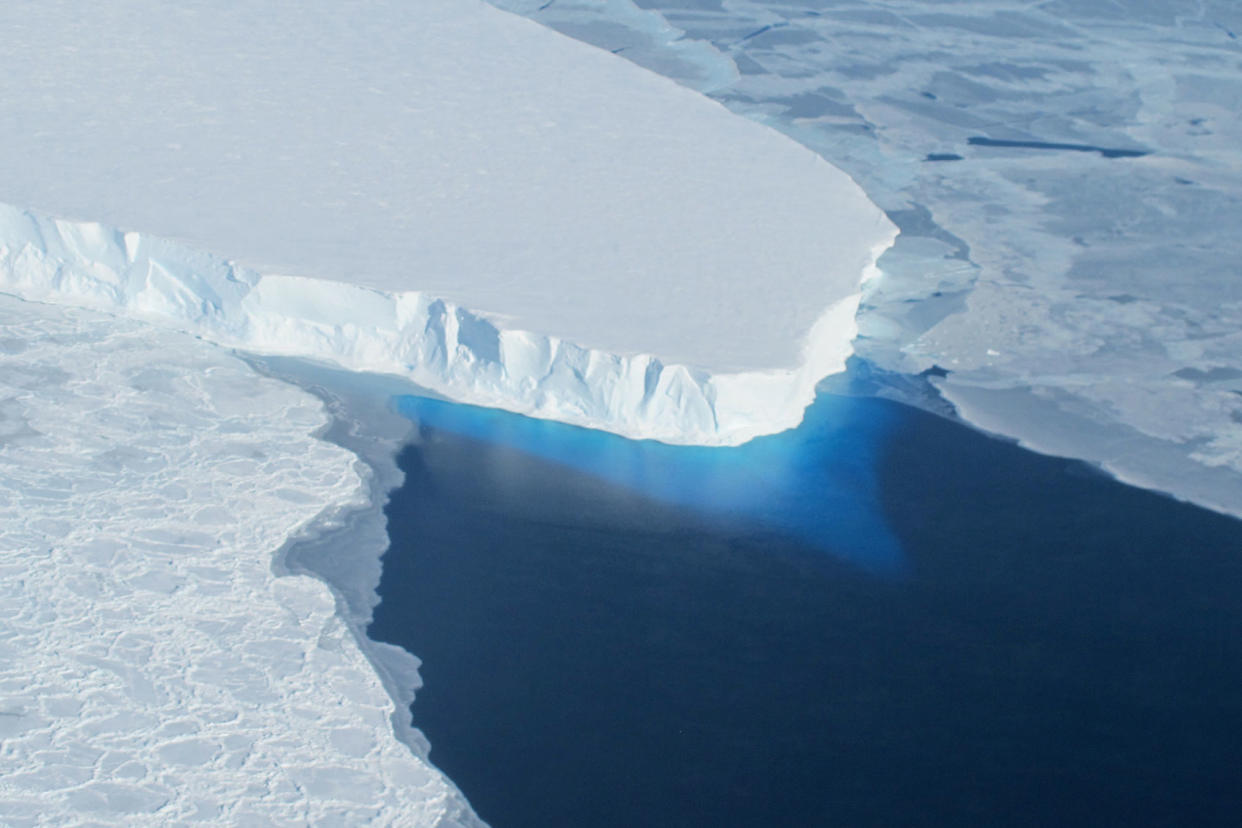Scientists worry so-called "Doomsday Glacier" is near collapse, satellite data reveals

Antartica's Thwaites Glacier is also known as the "Doomsday Glacier" because it could greatly contribute to sea level rise if it collapses. And new evidence suggests that's exactly what's happening.
Miles and miles below the surface, the glacier is destabilizing as ocean water rushes underneath its core structures. Scientists learned this thanks to high-resolution satellite radar data that shows Thwaites is being flooded with warm sea water, according to the study published in the journal PNAS.
Thwaites is the world's widest glacier, spanning approximately 80 miles and reaching depths of roughly 2,600 to 3,900 feet. It rests on downward sloping land and is therefore vulnerable to the ocean's eroding effects. Thwaites already single-handedly contributes to four percent of the world's total sea level rise. If it collapses on its own, the Florida-sized glacier will elevate sea levels by roughly two feet (65 centimeters). In the process, though, Thwaites' collapse could trigger other melting events, increasing sea levels by an estimated 10 feet (3 meters).
"The rushing of seawater beneath grounded ice over considerable distances makes the glacier more vulnerable to melting from a warmer ocean than anticipated, which in turn will increase projections of ice mass loss," the study's authors write. As UC Irvine professor and lead author Eric Rignot said to CBS News, "We see the seawater coming in at high tide and receding and sometimes going farther up underneath the glacier and getting trapped."
This is not the first report to indicate that climate change is weakening Thwaites at its very foundation. In 2021 researchers at the annual meeting of the American Geophysical Union (AGU) said the Thwaites Glacier had started destabilizing because the ocean water in the Amundsen Sea continued to warm. That warm water persists in melting the Thwaites Glacier's ice, and climate scientists who spoke with Salon expressed concern about this in 2021.
"This isn't the lynchpin for the collapse of the west Antarctic ice sheet, but it's a worrying development that underscores the urgency of efforts to decarbonize our civilization," Dr. Michael E. Mann, then a distinguished professor of atmospheric science at Penn State University, said at the time. He later added that "it is one significant step along the path of Antarctic ice sheet collapse and major inundation of our coastlines. A worrying sign that really does underscore the urgency of climate action."
CORRECTION: This article was updated after confusing sea level rise statistics regarding a Thwaites collapse.


